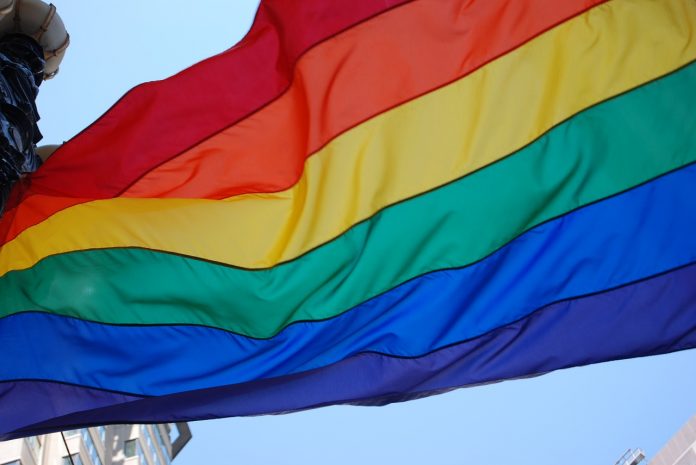This article is written by Gurpreet Singh, a student at the Faculty of Law, Delhi University. This article takes you through the lives of transgenders and the Transgender Persons Act, 2019.
Table of Contents
Introduction
Remember the famous stereotypical meme where Nana Patekar dances in front of a “transgender” and demands money from them. We are going to talk about ignored, unrecognized community in India i.e transgender community. This piece will take you through the ordeal of transgenders, the key provisions of the Transgender Persons Act, 2019, and various issues plaguing the same.
Transgender – meaning
The term transgender is derived from Latin. “Trans” means to move, prefixing it to gender, refers to a person that moves from one gender to another. In the modern understanding, transgender is a fluid term that has many anecdotes attached to it, in this pursuit, it has encapsulated infinite identities within its frame. It now includes within its ambit crossdressers, drag queens, “kinnars” or individuals who do not identify themselves within binaries of the “male” and “female”. Certainly learned nations also include intersex persons and different sexual orientations within the single definition of transgender. Next time someone inquires that who are transgender women or transgender men? bestow them with some wisdom by enlightening them that a male-to-female transgender individual is known as a transgender woman, similarly, a female-to-male transgender individual is known as a transgender man.
The ordeal of Transgenders in daily life
Shreya, a transgender who was born biologically a male, but felt herself to be a female had to run away from her paternal home due to non-acceptance of her gender identity. She navigates her way at the age of 12 through the streets of Mumbai, joined a transgender community). She explains that, after joining the hijra community, individuals have to adopt a guru (spiritual teacher) and join a Gharana (Households). According to her, joining the community has certain benefits such as social acceptance and being addressed with gender-fluid terms, but this comes with a cost that includes begging on the streets and submitting the earnings to the Gharanas having no economic agency, plunging into poverty. She remarks “We leave our families, the security and safety of our homes, only to plunge into poverty and destitution. All this so that we can wear a saree”
Shamibaba, a transgender working with the Vanchit Bahujan Aghadi (Deprived Majority Front), a political party in the Indian state of Maharashtra explains her experiences of caste discrimination within the hijra community. She explains individuals who run away from their homes seeking refuge in the hijra community have to be accepted into the gharanas, but there is a catch: lower-caste individuals are not accepted into the gharanas where the upper caste guru is in charge. “The traditional practices within the Hijra/Jogti/Aravani culture have a caste-system interwoven within them,” remarks Shami Baba.
Harrowing Statistics
These statistics are from the survey conducted by the Kerala development society on behalf of the National Human Rights Commission (NHRC).
- Only 2% of the transgenders stay with their parents, The report specifies that “parents do not play a proactive role in the case of transgender children, instead they suffer from verbal and corporal abuses at the hand of their parents”.
- 96% of transgenders are forced to undertake undignified work including badhai, begging, or sex work, where they are physically abused as well.
- 89% of the transgenders, even qualified are outside of the system of being granted jobs. .23 5 of the of them are forced to engage in sex work due to economic hardships.
- 99% have faced social discrimination, even from their consanguine relations.
- 52% of transgenders who managed to attend school have faced discrimination from their classmates.
- 15% of transgenders have faced discrimination from their teachers after suffering from hardships to enroll in a school in the first place.
- The police are inaccessible due to a partisan attitude. The report states that “there are cases of gang rape of transgender people, but they can’t approach the police station fearing harassment”.
- 57% transgenders hope to undergo sex reassignment surgery, but they cannot afford it.
The Transgender Person’s Act- Key Provisions
Definition of Transgender
Transgender refers to persons, who don’t confine themselves to the specific gender of males or females. Transgender includes individuals with intersex variants, genderqueer and also includes individuals who live in communities and call themselves Kinner, hijras,aravani or jogta.
Definition of intersex persons
The Act defines intersex individuals as someone who depicts variations in “primary sexual characteristics”, chromosomes, genitalia, or hormones at birth which are different from the” male and female body.”
Prohibition of discrimination
The Transgender Act prohibits discrimination against transgenders under the encapsulated occasions
- Prohibits discrimination against the transgender in educational institutes.
- Prohibits unfair treatment against transgenders in respect of promotions.
- No one can refuse the transgender an opportunity solely for the reason of being a transgender.
- No discrimination to be vetted out to transgenders while availing health care facilities.
- No discrimination against transgenders in relation to having access to goods that are available to the cis-gendered.
- No prohibition on their right to movement, as available to the cis-gendered.
- No discrimination against transgendered regarding their right to purchase, rent or reside in a property.
- No discrimination against transgenders for holding a public office.
Increased Focus on Access to Health Care
The Act mandates the appropriate government to make accommodations for transgenders by building separate HIV surveillance centers. The act also emphasizes providing medical insurance for transgenders.
Employment matters
The Act mandates appointing a complaint officer in public or private establishments to deal with the complaints under the Act. Further no discrimination in respect of selection and promotions.
Identity
The Transgender Persons Act under Section 4 guarantees that transgender, as defined under the Act, shall have a right to self-perceived gender identity, Section 5 of the Act states a transgender may apply for a transgender certificate from” District Magistrate”.The procedure to attain a certificate would be prescribed by the government. Further, in the case of a minor child, the parents can apply for the prescribed certificate. Section 7 of the Act states that if the transgender has undergone a sex reassignment procedure, they have to obtain a certificate from the chief medical officer or medical superintendent for the same and apply to the district magistrate for the revised certificate.
Welfare Initiatives
The government through this Act intends to promote welfare measures for the transgender community. The government has to promote vocational training and promote self-employment among transgenders.
Penalties and offenses
The Act penalizes certain actions against transgenders such as forced and bonded labor, blocking access to public places, forcing transgenders to leave a residence or a village, or any other place of residence. Abusing transgenders, physically, emotionally, and sexually is also penalized. All offenses mentioned above carry a sentence of 6 months to 2 years.
Establishing National Council for Transgender Persons
The Act proposes to establish the National Council for Transgender (NCT) which shall consist of Union minister of social justice as ex-officio chairman, the minister of state for social justice, secretary of the government of India, in charge of social justice, one representative from National Human Rights Commission and National Commission for Women, five representatives of the transgender community, by rotation, from the State Governments and Union territories, one each from the North, South, East, West and North-East regions, to be nominated by the Central Government, Member. The commission will overlook the policy implementation regarding the transgenders and would act as a hub to redress grievances of transgender persons.
Underlying deficiencies of the Transgender Person Act, 2019
- Section 4 of the Act grants the transgender a right to have a self-perceived identity of gender, but Section 5 lays down that a certificate of being a transgender would be issued by the district magistrate according to the procedures formulated. Indirectly state is promoting to apply for a transgender certificate. This understanding is skewed as it leads to discrimination against transgender individuals. A cis-gendered individual doesn’t need a certificate from the district magistrate to prove his/her gender. Moreover, the Act doesn’t make it clear whether district magistrate would have the discretion to deny the application or guidelines as to procedure would be issued by the government, The Definition ignores the Judgement of the Supreme Court in Nalsa v. Union of India which held that self-perceived gender is a right under Article 21 of the Constitution which guarantees life and personal liberty.
- Section 2(k) defines transgender’s but it also encapsulates within its ambit socio-cultural identities such as hijras, kinnars, jogta and aravni There is no definition provided for the above-mentioned terms, The socio-cultural identities have a history, legacy, and context, what about addressing their struggles individually?. Moreover including intersex persons under the definition of transgender is skewed. An intersex person might not consider themselves as transgender but cisgender. The underlying effect of this definition is that there is an assumption that “All Intersex persons are transgender”
- Section 3 of the Act prohibits discrimination against transgenders in educational institutions, jobs, restaurants, pubs, and residences but if they are discriminated against in the above-mentioned places, no remedy is available against the same, A right without a remedy is no right.
- The Act under Section 7(1) prescribed if a transgender has gone through a sex reassignment surgery, they would have to apply to the district magistrate for a certificate of gender, but no incentives have been provided in the Act to undergo expensive surgeries as quoted earlier 57% of the transgenders cannot afford undergoing surgeries The Act under Section 12(1) forces the right of residency of transgender in their family homes, but that is where the deadly cycle of violence is unleashed on them. The Act fails to acknowledge the results of a study undertaken by Kerala development society on behalf of National Human Rights cooperation(NHRC) that states only 2% of the transgender’s live with their parents or guardians, others run away to be later struck by destitute poverty and finally lead to begging on the streets.
- The Act doesn’t outrightly ban the sex reassignment procedures undertaken by parents of intersex individuals right after they are born. The individual later might find to be struck into another body and struggle with mental health.
- Section 18 of the Act prescribes punishment for sexual abuse against transgenders ranging from 6 months to 2 years. On contrary, under the Indian Penal Code, The offense of sexual abuse carries a punishment ranging from 7 years to life imprisonment. Are we implying that the dignity of a transgender individual is less important than the dignity of a female?
- The Act is mum on the aspect of providing reservations to the transgenders that in effect goes against the Supreme Court Ruling of NALSA v. Union of India declares transgender’s as socially and economically backward classes, eligible for reservation.
Current status of the Act
The Act has come into force but its constitutional validity has been challenged by first trans judge Swati Bidhan Baruah before the Supreme Court. The petition filed by the judge contends that the Act instead of protecting the rights of transgender further pushes them down the hole. As discussed above the Act mandates certification of gender from the District Magistrate, the petition contends that the provisions of this Act are” invasive and violative of the personal dignity and privacy of the transgender person”.The petition further contends that these provisions are contrary to the judgment of the Supreme Court delivered under National Legal Service Authority v. Union of India which rules that self perceiving gender is a right protected under Article 21 of the Constitution. The petition on the aspect of identification contends that “The process of certification is unnecessarily invasive and fails to achieve a balance between the right in question and the state aim of effectuating self-identification. The method prescribed completely deprives transpersons of their right to privacy”.The petition raises the point of reservation and it is contended in the petition “Reservation being a facet of equality is a necessary measure that Parliament should have incorporated under the Act.”
Conclusion
Transgenders have been excluded from our social, cultural, economic, and political lives since time immemorial. The Act has unignorable deficiencies. For once let the transgender community decide what they want for themselves.
References
- https://prsindia.org/billtrack/the-transgender-persons-protection-of-rights-bill-2019
- https://prsindia.org/files/bills_acts/bills_parliament/The%20Transgender%20Persons%20(Protection%20of%20Rights)%20Act,%202019.pdf
- https://timesofindia.indiatimes.com/india/left-alone-just-2-of-trans-people-stay-with-parents/articleshow/65380226.cms
- https://thediplomat.com/2020/01/what-does-indias-transgender-community-want/
- https://www.hrw.org/news/2019/07/23/india-transgender-bill-raises-rights-concerns
- https://nhrc.nic.in/sites/default/files/Study_HR_transgender_03082018.pdf
LawSikho has created a telegram group for exchanging legal knowledge, referrals, and various opportunities. You can click on this link and join:
https://t.me/joinchat/J_0YrBa4IBSHdpuTfQO_sA
Follow us on Instagram and subscribe to our YouTube channel for more amazing legal content.
 Serato DJ Crack 2025Serato DJ PRO Crack
Serato DJ Crack 2025Serato DJ PRO Crack










 Allow notifications
Allow notifications


